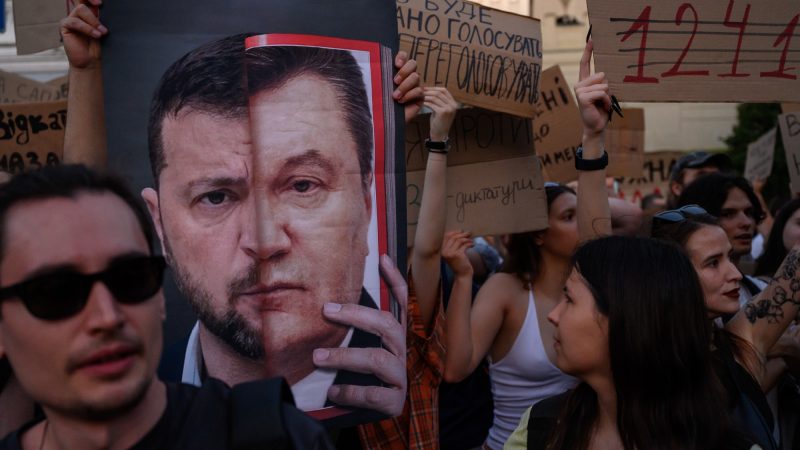
Recent events in Ukraine have sparked a heated debate about the actions of President Volodymyr Zelenskyy. A controversial bill, initially aimed at curbing the independence of anti-corruption agencies, led to widespread protests – the first significant domestic unrest since the Russian invasion. While Zelenskyy eventually backtracked, the incident has raised serious concerns about the potential erosion of democratic principles within the country.
The Kyiv Independent, among other publications, voiced strong criticism, accusing Zelenskyy of betraying Ukraine’s democracy. The rationale behind the bill, ostensibly to counter Russian influence on investigators, has been met with skepticism. Analysts suggest the true motivation may have been to protect politically connected individuals from scrutiny. This perspective is supported by reports of rampant corruption within the military-industrial complex, with insiders allegedly profiting from inflated contracts.
The EU, while publicly supporting Ukraine’s war effort, has remained relatively quiet about the ongoing corruption issue, a silence criticized by several commentators. This perceived inaction is viewed as a missed opportunity to address a crucial problem that undermines Ukraine’s long-term stability and its aspirations to join the European Union. The argument is that supporting Ukraine’s democracy should be just as crucial as its military defense.
While Zelenskyy himself is not directly implicated in corruption, the actions of his administration, particularly the targeting of critics and the weakening of independent institutions, raise concerns about a gradual shift towards authoritarianism. This trend is seen as further undermining the war effort, as it provides ammunition to Russia’s propaganda machine and fuels skepticism amongst Western allies.
The silence from some Western allies on this issue is also a matter of concern. Several commentators argue that a true friend would challenge Zelenskyy’s actions and promote democratic values. The current situation highlights the complexities of supporting a nation at war, balancing military assistance with the need to uphold democratic principles. The struggle for Ukraine’s future is being fought not only on the battlefield but also within its own democratic institutions, and the recent events underscore the urgency of this internal conflict.










